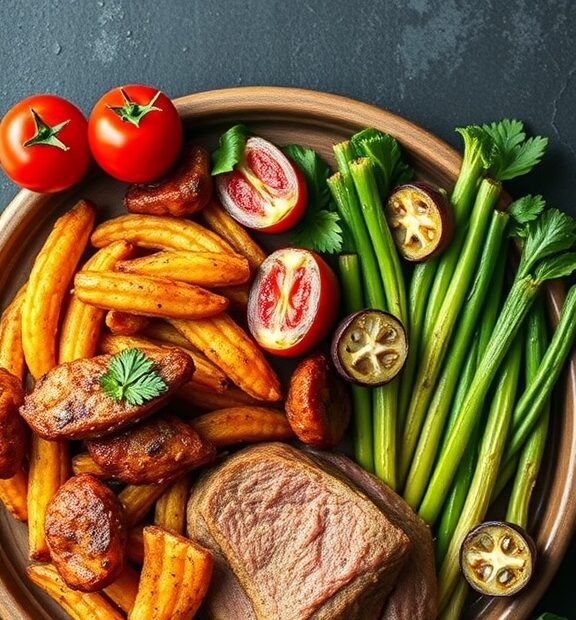Incorporating a high protein calorie deficit meal plan can be a powerful strategy for those looking to lose weight while maintaining muscle mass. A meal plan that is rich in protein helps increase satiety, leading to reduced overall calorie intake, making it easier to stay within a calorie deficit.
To effectively create a high protein calorie deficit meal plan, consider integrating the following components:
- Lean Proteins: Include chicken breast, turkey, fish, legumes, and low-fat dairy. These foods are packed with proteins while being relatively low in calories.
- Healthy Fats: While fats are calorie-dense, incorporating sources like avocados, nuts, and seeds in moderation helps promote satiety.
- Fruits and Vegetables: Incorporate high-volume, low-calorie foods like leafy greens, berries, and cruciferous vegetables. They offer vital nutrients and help fill you up without adding excessive calories.
- Complex Carbohydrates: Foods such as quinoa, brown rice, and oatmeal provide lasting energy and fiber, promoting a balanced diet without going overboard on calories.
Sample high protein calorie deficit meals might include:
- Breakfast: Scrambled egg whites with spinach and a side of Greek yogurt.
- Lunch: Grilled chicken salad topped with chickpeas, cherry tomatoes, and a light vinaigrette.
- Dinner: Baked salmon with steamed broccoli and quinoa.
- Snacks: Cottage cheese with sliced peaches or a protein shake with unsweetened almond milk.
When following a high protein calorie deficit meal plan, it’s crucial to track your intake and adjust portion sizes as necessary to ensure you’re consistently in a calorie deficit. This approach not only promotes fat loss but also helps retain lean muscle mass, leading to a healthier, more sustainable weight management strategy.
